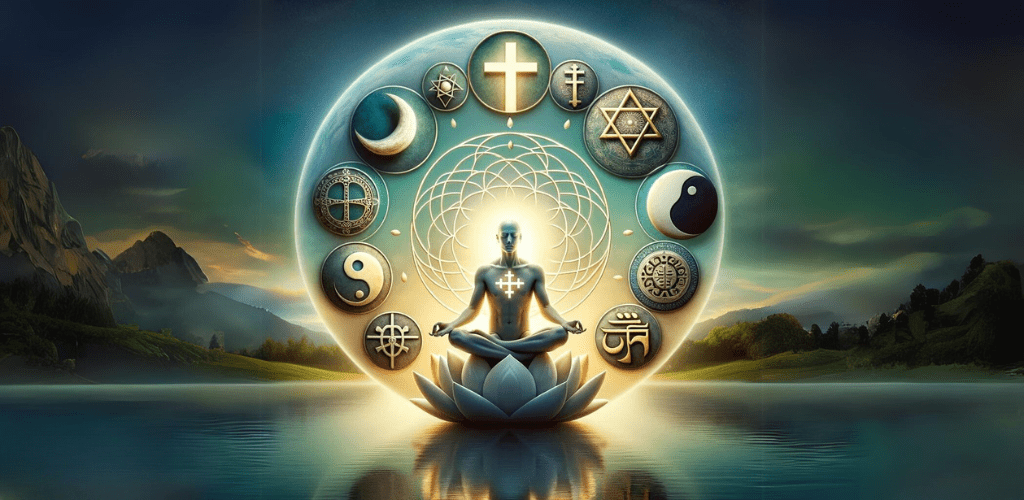Philosopher Arthur Schopenhauer believed that since our intellect imposes difference on the universe, the universe outside of our intellect must be an undifferentiated oneness. Whether expressed as the Hindu concept of Brahman,” the Islamic belief in the oneness of God, or the Christian understanding of a divine unity, the essence of oneness across religions remains consistent.
In this undifferentiated state, or a non-dual state, there is no separate You and I or ‘now’ and ‘then.’ However, this state cannot be understood by the mind. The language of the mind is grounded in duality. We learn through differentiating between extremes: night and day, black and white, etc. Nevertheless, non-duality has been experienced by many spiritually evolved persons throughout history and across all religions, who have transcended the ordinary limitations of the mind.

Oneness suggests that, at a fundamental level, we are all interconnected and share a common source. This recognition of unity is also deeply embedded in modern science and has profound implications for how we perceive and engage with the world. It inspires compassion, empathy, and a sense of responsibility toward others and the planet.
In a world often marked by division, embracing the notion of oneness offers a pathway to fostering understanding and cooperation. Moreover, the concept holds the promise of a hopeful future, suggesting that by recognizing our shared humanity and the interconnectedness of all life, we can collectively work towards a more harmonious and sustainable world.
As Deepak Chopra says, “Once we start with wholeness as the most basic fact of existence, many old riddles are solved, and we can begin to live the mystery rather than be baffled by it”.
Christianity
“Compassion is the keen awareness of the interdependence of all things.”
— Thomas Merton, Catholic monk and scholar of religion
Judaism
“Here, O Israel, the Lord is God, the Lord is ONE.”
– The Hebrew Bible (Deuteronomy 6:4), Jewish text
Islam
“The Muslims are like a single man. If the eye is afflicted, then the whole body is afflicted. If the head is afflicted, then the whole body is afflicted.”
—The Prophet Muhammad
Baha’i
“Ye are all the leaves of one tree and the drops of one ocean.”
—Bahá’u’lláh, Baha’i prophet
Buddhism
“Before we were born we had no feeling; we were one with the universe […] When you do not realize that you are one with the river, or one with the universe, you have fear. Whether it is separated into drops or not, water is water.”
—Shunryu Suzuki, Zen Buddhist monk and teacher
Taoism
“We are interconnected with all things—plants and animals, heaven and earth—because all things trace their origins to and owe their existence to the Primal Oneness.”
—The Book of Lieh-tzu, Taoist text
Confucianism
“All things are nourished together without their injuring one another. The courses of the seasons, and of the sun and moon, are pursued without any collision among them.”
—The Doctrine of the Mean, Confucian text
Hinduism
“Established in oneness with me, one who beholds me as present in all beings, that yogi resides within me, in all circumstances.”
—The Bhagavad Gita (6:31), Hindu text


